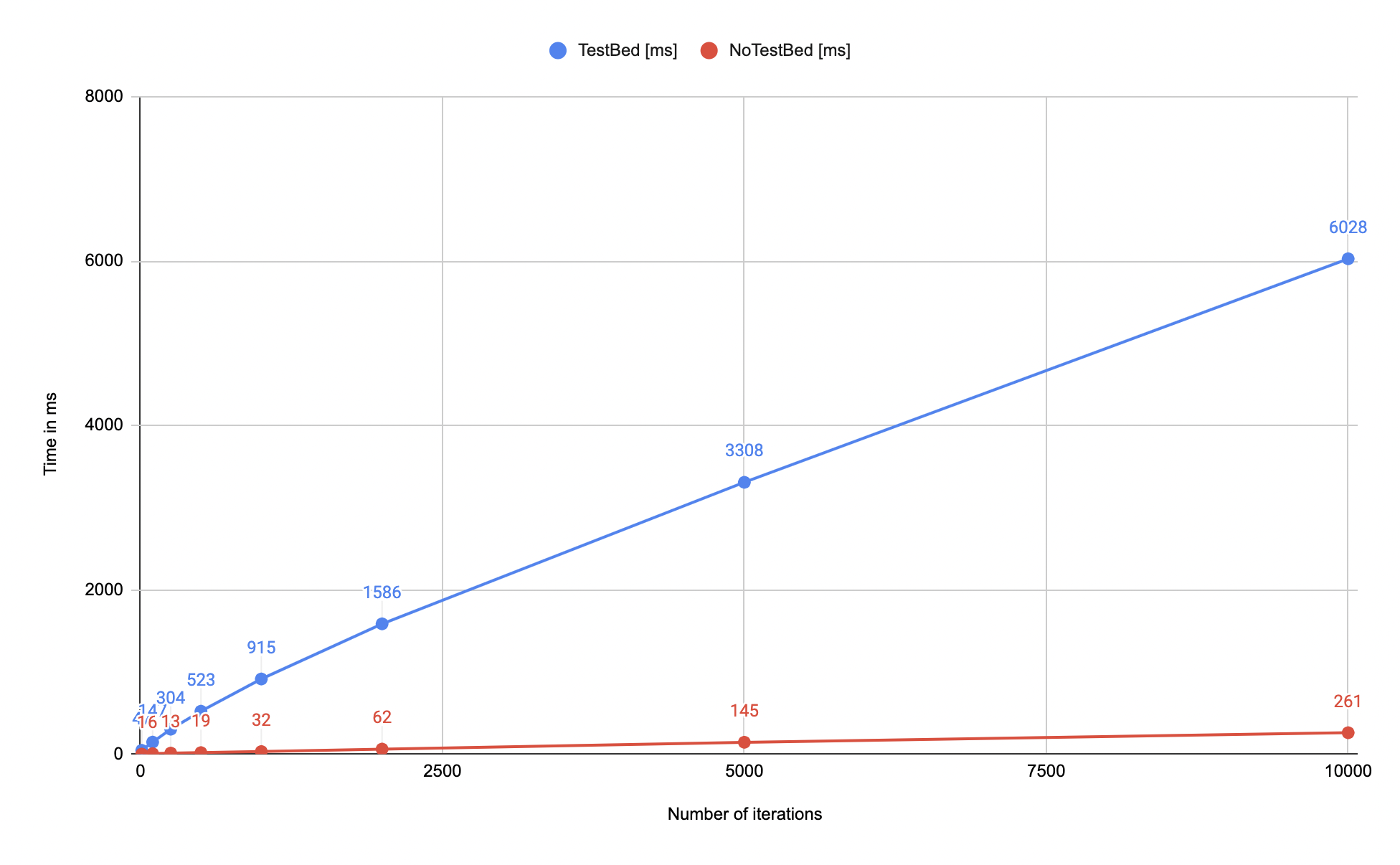Short: I had some time, so I checked how time-consuming is TesBed
This is going to be short. I cannot stop thinking about my last results from the previous article. I was able to use esbuild instead of ts-jest, and it was still slow.
It looked like using TestBed is time-consuming. So I decided to check it, and I’m ready to show you the results.
The test
For testing, I used the same repository. You can find it on my GitHub: ng-esbuild-unit-tests.
The test is simple. Each it contains a loop and a test.
Both tests are testing the same case,
tests are checking if the Output of the component emitted a value after calling createItem method.
| |
Results
I decided to run tests a few times. Each time, I increased the number of iterations in the loop inside the tests.

| Number of iterations | TestBed [ms] | NoTestBed [ms] | TestBed time per iteration [ms] | No TestBed time per iteration [ms] | How many times tests without TestBed were faster that tests with TestBed |
|---|---|---|---|---|---|
| 10 | 47 | 1 | 4,7000 | 0,1000 | 47 |
| 100 | 147 | 6 | 1,4700 | 0,0600 | 25 |
| 250 | 304 | 13 | 1,2160 | 0,0520 | 23 |
| 500 | 523 | 19 | 1,0460 | 0,0380 | 28 |
| 1000 | 915 | 32 | 0,9150 | 0,0320 | 29 |
| 2000 | 1586 | 62 | 0,7930 | 0,0310 | 26 |
| 5000 | 3308 | 145 | 0,6616 | 0,0290 | 23 |
| 10000 | 6028 | 261 | 0,6028 | 0,0261 | 23 |
Summary
I expected before doing the test that the time of the test will be linear. It’s a simple loop, so it’s natural. What is fascinating is that when I had a small number of iterations, the difference between my two tests was significantly greater. When I had a lot of iterations, the difference was still visible, but the time per iteration was shrinking.
So why not verify it…?
ONE LAST TEST: 100000 ITERATIONS!
| Number of iterations | TestBed [ms] | NoTestBed [ms] | TestBed time per iteration [ms] | No TestBed time per iteration [ms] | How many times tests without TestBed were faster that tests with TestBed |
|---|---|---|---|---|---|
| 100000 | 56573 | 3714 | 0,5657 | 0,0371 | 15 |